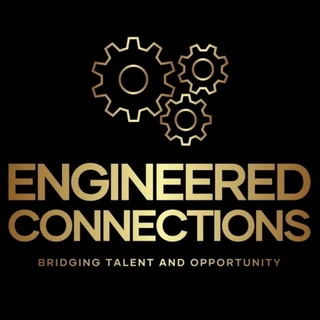As the demand for skilled engineers in the UK continues to rise, professionals in the field need to be proactive in securing their long-term career success. At Engineered Connections, we’ve seen firsthand the qualities and skill sets that make engineers stand out in today’s competitive job market. To thrive in this evolving industry, engineers must stay adaptable, versatile, and forward-thinking. Here are some key strategies to help you future-proof your career.
1. Embrace Lifelong Learning
The engineering landscape is constantly evolving due to technological advancements, regulatory changes, and shifting market demands. Engineers who commit to continuous learning will not only stay relevant but will also enhance their value to current and future employers. Investing time in gaining certifications, enrolling in professional development courses, and keeping up with the latest industry trends will demonstrate your commitment to growth.
Additionally, fields like automation, AI, and renewable energy are becoming integral to many engineering roles. By expanding your expertise in these areas, you’ll position yourself as an industry leader capable of navigating the challenges of tomorrow.
2. Develop a Diverse Skill Set
While deep expertise in a specific area is important, engineers who develop a diverse skill set are often more attractive to employers. By acquiring complementary skills, you make yourself more versatile and adaptable, which is critical in an increasingly competitive job market.
For example, knowledge of project management methodologies, sustainability practices, or proficiency in digital tools like CAD, BIM, and other engineering software can set you apart. Soft skills such as leadership, teamwork, and effective communication are also in high demand, especially as engineers frequently collaborate with multidisciplinary teams. Building this broader skill set will make you a more well-rounded candidate, ready to handle a variety of challenges.
3. Network Actively
In an interconnected industry like engineering, the importance of networking cannot be overstated. Building and maintaining a robust professional network can open doors to new job opportunities, collaborations, and mentoring relationships that can help you grow in your career.
Networking can be done both in person and online. Attend industry events, conferences, and seminars to meet professionals in your field. Join professional organizations or groups that align with your areas of expertise. In the digital realm, platforms like LinkedIn provide opportunities to connect with industry leaders and peers. Regularly engaging in industry discussions or sharing your knowledge through online forums can also raise your profile and make you more visible to potential employers.
4. Focus on Sustainability and Innovation
Sustainability is no longer just a buzzword—it’s a driving force behind many of the major engineering projects in the UK. Whether in infrastructure, energy, or manufacturing, engineers who prioritize sustainable practices and are able to innovate within this space are in high demand.
For example, roles in renewable energy, green building design, and carbon reduction technologies are rapidly expanding. Engineers who can demonstrate knowledge and experience in developing sustainable solutions will have a competitive edge. Staying informed on regulatory changes, environmental standards, and the latest green technologies will help you remain a valuable asset as industries continue their push towards sustainability.
5. Adapt to Technological Advancements
Technology is reshaping how engineers approach problem-solving, design, and project execution. Engineers who are comfortable adapting to new tools and methodologies will be better equipped to handle the rapid pace of industry change. Automation, artificial intelligence, and data analytics are becoming vital components of the engineering process.
Familiarizing yourself with the latest software, such as simulation tools, robotics systems, and IoT-based platforms, will future-proof your technical capabilities. Staying agile and willing to adopt new technologies will make you more attractive to forward-thinking employers who are integrating cutting-edge solutions into their operations.
6. Demonstrate Leadership and Initiative
In today’s competitive job market, technical skills are not enough—employers are looking for engineers who demonstrate leadership and initiative. Taking on leadership roles, whether within a team, a project, or through mentorship, shows that you have the ability to take charge and make impactful decisions.
Additionally, engineers who take the initiative to suggest improvements, innovate within their current roles, or propose new solutions to challenges often stand out to employers. Being a proactive contributor not only enhances your current position but also prepares you for senior roles in the future.
Partner with Engineered Connections for Career Success
At Engineered Connections, we’re committed to helping engineers thrive in a dynamic and competitive market. Whether you’re looking to make your next career move or want guidance on how to advance in your current role, we are here to connect you with leading employers across the UK. From structural engineers to sustainability specialists, we specialize in matching skilled professionals with companies that value innovation and long-term success.
By implementing these strategies—embracing lifelong learning, developing a diverse skill set, networking, focusing on sustainability, and demonstrating leadership—you’ll be well-equipped to future-proof your career in engineering.
